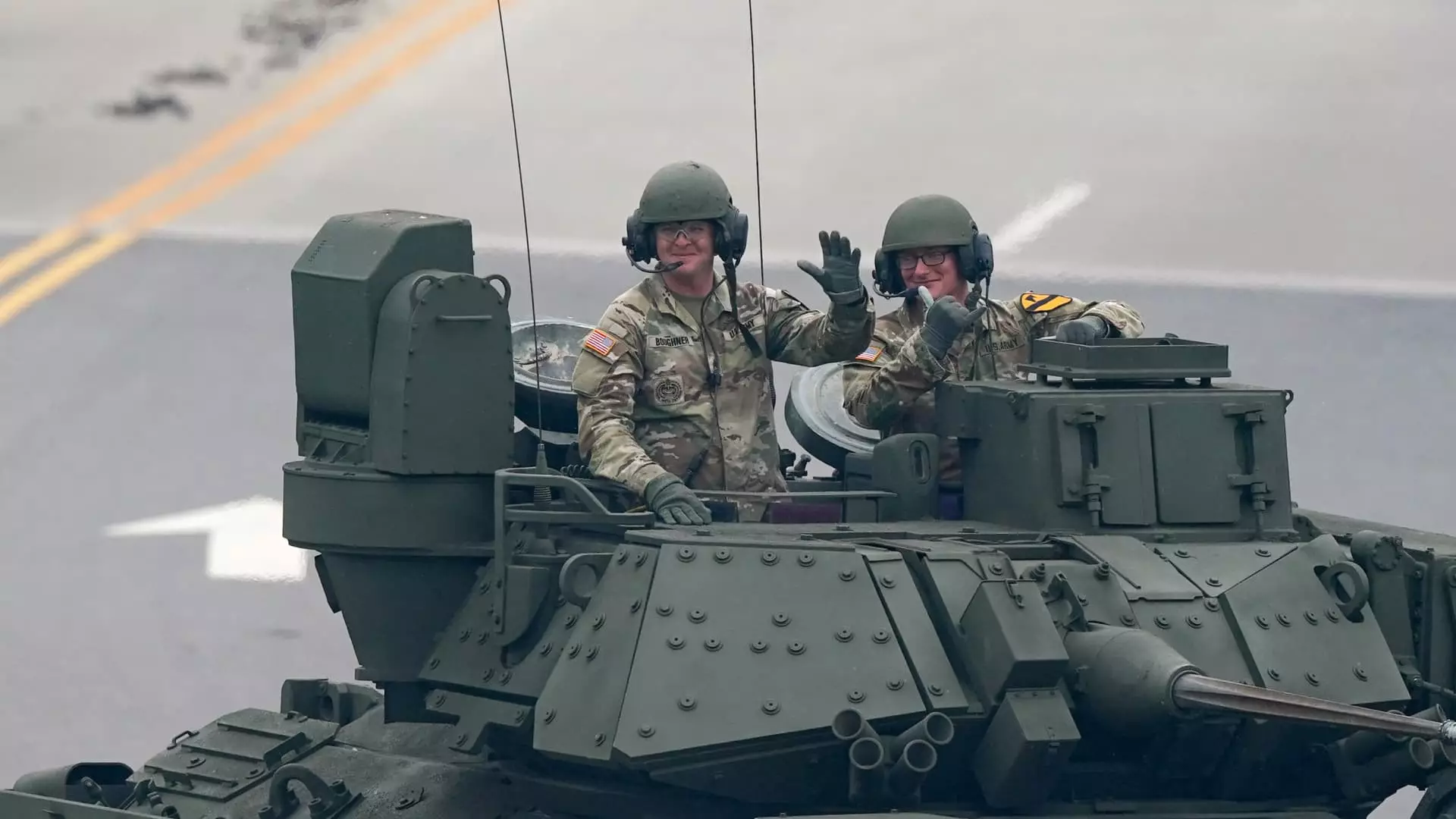In recent discussions surrounding the NATO summit taking place in The Hague, the collective decision of 31 member states to substantially raise their defense spending targets to an alarming 5% of gross domestic product (GDP) raises numerous concerns. While proponents argue this increase is crucial for enhancing national security amid global uncertainties, the implications of such a military-oriented financial strategy deserve critical scrutiny. The stark reality is that what could be deemed an impenetrable shield for national sovereignty might, paradoxically, become a heavy anchor, weighing down vital social services and economic growth in member nations.
The rally in European defense stocks, exemplified by impressive gains from key firms like British Babcock International and Italian Avio, reflects a burgeoning industry that benefits from this increase. However, as lucrative as this may seem for investors and defense corporations, one must question whether militarization is the correct avenue upon which to invest our dwindling public funds. Wouldn’t it be more prudent to redirect this cash into social infrastructure, education, and renewable energy, which hold the potential for long-term viability and community strengthening?
The Market Reaction and Economic Implications
The immediate response from European stock markets, with indices like Stoxx Aerospace and Defense racing ahead, points to an ecstatic cheer among traders—but at what cost? A year-to-date spike of nearly 50% in this sector might suggest that the markets view escalating military budgets as a boon. However, a deeper analysis suggests that such market exuberance may be rooted in a corporate illusion rather than a stable foundation. Increased defense spending could lead to a misallocation of precious resources, diverting attention from pressing issues such as healthcare, workforce development, and climate challenges, which are, arguably, threats just as significant as military aggression.
As we witness this battle of financial dynamics, one cannot ignore the inherent risks of fostering a culture of militarism. A society where funds are perpetually flowing into warfare apparatuses risks breeding an environment of fear and hostility rather than diplomacy and cooperation. The ramifications extend beyond economics into social well-being, where citizenry suffers under the weight of a military-first ideology.
The Role of Global Events in Shaping Policies
The NATO summit’s backdrop is fraught with geopolitical tensions, particularly the fragile ceasefire between Israel and Iran. Such conflicts underscore the need for a diplomatic—as opposed to militaristic—approach to international relations. Investing massively in defense not only distances societies from progressive dialogue but also reinforces a cycle of aggression that can have catastrophic consequences for global peace.
Recent comments from U.S. Federal Reserve Chair Jerome Powell, advocating for a pause in economic adjustments to better assess the ramifications of ongoing trade tensions, reveal a need for clarity and caution. An echo of this sentiment should reverberate through European policies. If defense is indeed a priority, then there must be a balance struck between preparing for potential conflict and nurturing the social and economic fabric that binds citizens to their governments.
A Call for Rational Discourse amidst Hysteria
As world leaders congregate, the opportunity for reflective discussions about the implications of these defense spending increases should not be lost. A civil society must evoke strong discourse on economic priorities—one grounded not merely in sensationalism or alarm, but in a comprehensive analysis of threats and opportunities.
If North Atlantic alliances are to thrive, the strategy should not spiral even further into military escalation but rather embrace a more multifaceted approach to security—one that considers ecological sustainability and social equity as vital components of national strength. The ongoing trend towards heightened military funding appears to herald a resurgence of Cold War mentalities, where security is measured in weapons rather than civilian well-being.
Ultimately, the European response should prioritize dialogues over divisions, fostering partnerships that embrace humanistic values rather than reinforcing the barriers of militarism. There lies an urgent need for leaders to reflect deeply on the narratives they propagate and question: Are we truly secure with guns in hand, or could a robust economy combined with diplomacy offer greater safety for all?

